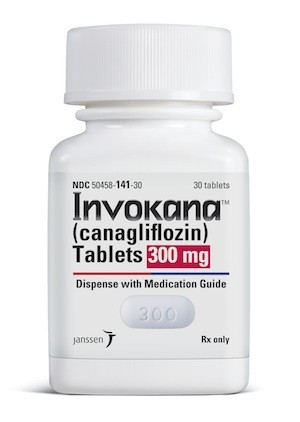The diabetes drug Invokana significantly increases a patient’s risk of heart attack during the first 30 days of treatment, according to clinical trials.
What You Can Do & How an Invokana Lawsuit Can Help
The Schmidt Firm, PLLC is currently accepting Invokana injury cases in all 50 states. If you or somebody you know was diagnosed with a heart attack, you should contact our lawyers immediately for a free case consultation. Please use the form below to contact our Defective Drug Litigation Group or call us toll-free 24 hours a day at (866) 920-0753.
Invokana Heart Attack Risk in First 30 Days of Treatment
When Invokana was approved in March 2013, it was the first drug in a new class of anti-diabetes medications. As with any new medication, there is always a risk of unintended side effects.
Unfortunately, during clinical trials there were 13 patients who had major cardiovascular events (stokes and heart attacks) during the first 30 days of treatment. Only one patient on a placebo experienced heart problems. The risk equalized after 30 days of treatment.
Experts were not sure why there was an increased risk, but Invokana was also shown to raise “bad” cholesterol (LDL) and “good” cholesterol (HDL). High levels of cholesterol are a major risk-factor for cardiovascular events, especially in people with type-2 diabetes.
The New York Times noted:
“The label of the drug includes no warnings about heart attacks or strokes. … The FDA is requiring Johnson & Johnson to conduct five post-marketing studies, including a clinical trial to determine more definitively if the drug increases those risks.”
Many experts are concerned about the link between Invokana and heart attack because another diabetes drug, Avandia, was also linked to heart attack in 2010. It was quickly banned in Europe and sharply restricted in the United States.
What is the problem?
Having diabetes doubles the risk of heart disease and stroke. Heart attacks are much more serious and more likely to be deadly in people with diabetes. Given these serious safety concerns, diabetics must be very careful about taking any medication that can increase their risk of heart problems.
What is a Heart Attack?
A heart attack (myocardial infarction) occurs when something blocks the flow of blood to the heart muscle — usually a blood clot or a fatty-plaque deposit that breaks off from the inside of a blood vessel.
During a heart attack, the heart muscle is starved of oxygen and begins to die. If blood-flow is not restored, tissue damage can be so severe that the heart is unable to pump blood to the rest of the body. Although many people survive heart attacks, lifelong complications are common.
Warning Signs & Symptoms
Not everyone who has a heart attack has the same symptoms. While some heart attacks cause sudden, crushing chest pain, others cause only minor symptoms that more closely resemble indigestion or heartburn. Anytime you suspect someone is having a heart attack, call 9-1-1 for emergency medical attention.
Heart attack symptoms may include:
- Chest pain or discomfort
- Upper body discomfort
- Radiating pain to the arms, back, shoulders, neck, jaw, etc.
- Shortness of breath
- Excessive sweating
- Feeling unusually tired
- Light-headedness or dizziness
- Nausea and vomiting
- And more
Do I have an Invokana Lawsuit?
The Schmidt Firm, PLLC is currently accepting Invokana injury cases in all 50 states. If you or somebody you know was diagnosed with a heart attack, you should contact our lawyers immediately for a free case consultation. Please use the form below to contact our Defective Drug Litigation Group or call us toll-free 24 hours a day at (866) 920-0753.
Attention Lawyers: We consider a referral from another law firm to be one of the greatest compliments. If your firm is interested in referring us a case or for us to send you a list of previous award judgments and/or average referral fees, please visit the Lawyer Referral section of our website.


 The Schmidt Firm, PLLC has been recognized as one of the nation’s leading plaintiffs' law firms and handles cases in all 50 states. We are very proud of our legal achievements, but equally self-respecting of our firm's reputation for providing personal attention to each and every client we represent.
The Schmidt Firm, PLLC has been recognized as one of the nation’s leading plaintiffs' law firms and handles cases in all 50 states. We are very proud of our legal achievements, but equally self-respecting of our firm's reputation for providing personal attention to each and every client we represent.

